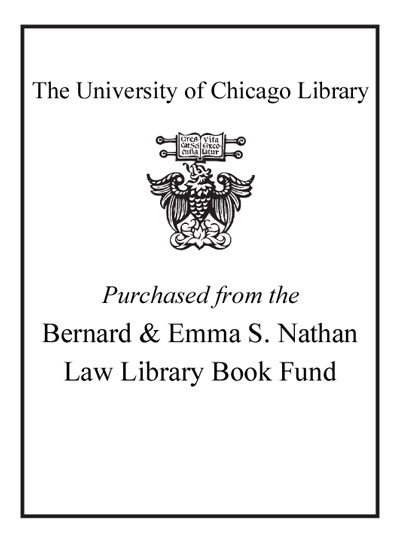Review by Booklist Review
Rilke is hot this year--as an advice-giver. His Letters to a Young Poet is the point of reference for Dershowitz's "oral letters," part of a new series called the Art of Mentoring, and for Christopher Hitchens' commentary on contrarianism (see p.271). Having written more than a dozen previous books, Dershowitz is a known quantity; readers tend to be either fans or foes. Those who like him will find plenty of commonsense suggestions here, on heroes and enemies and on morality and wealth. The "young lawyer" of the title is the book's most obvious target reader, but Dershowitz's commentary on his profession will also appeal to those who work with lawyers and even to readers who love legal thrillers. And because attorneys simply face different versions of the challenges most white-collar workers face, much of Dershowitz's advice can be applied in other workplaces as well. Likely to circulate where Dershowitz's other books are popular. --Mary Carroll
From Booklist, Copyright (c) American Library Association. Used with permission.
Review by Publisher's Weekly Review
Dershowitz helps inaugurate a new series called the Art of Mentoring with this volume of advice and reflection on practicing law. Several unifying themes run throughout, most prominently the ethical traps for defense attorneys, prosecutors and even judges inherent in the practice of criminal law. Dershowitz alerts a fledgling lawyer to the systemic bias, corner-cutting and outright cheating that he sees permeating the criminal courts. While Dershowitz recognizes the ethical ambiguity that suffuses much of the law, he is more concerned with communicating the moral absolutes he believes in. These include the uncompromising obligation of a defense lawyer to work for the accused's acquittal by all legitimate means. A believer in telling the truth, Dershowitz excoriates deceitful lawyers and hypocritical judges alike. Along with the moral imperatives, the author tells some war stories and settles a few scores, for example, with critics who took him to task for defending O.J. Simpson, and with the Supreme Court, whose decision in the 2000 election case Dershowitz finds dishonest and unprincipled. The young lawyer (to whom these mini-essays are addressed) will perceive how ethically messy and complicated the law can be and how many core issues in our national life the law touches. Even more, the reader will come away with a sense of Dershowitz himself as teacher, tenacious advocate and self-described provocateur. (Nov.) (c) Copyright PWxyz, LLC. All rights reserved
(c) Copyright PWxyz, LLC. All rights reserved
Review by Kirkus Book Review
An extended graduation speech by America's leading legal gadfly. To his credit, Professor Dershowitz (Law/Harvard Univ.) admits that "I write like I talk." Readers hoping to find a collection of subtle, elegantly crafted essays about the law will be disappointed. Instead, this collection reads as though it had been dictated within the space of a sleepless 48 hours. But then that's quintessential Dershowitz: fast-thinking, fast-talking, and unapologetically opinionated. In a series modeled on Rainer Maria Rilke's Letters to a Young Poet (see Christopher Hitchens's Letters to a Young Contrarian, p. 1090), Dershowitz dispenses advice to those embarking on careers in the law. His reflections touch on many of his longstanding obsessions, particularly the unethical practices he contends compromise our criminal justice system. Nor can he resist firing off a few gratuitous salvos about his view that the Supreme Court corruptly influenced the outcome of the last presidential election. The Court's opinion, he writes, "should not be respected, any more than the robed cheaters who wrote it should be respected." Unlike its flamboyant author, however, little of the advice dispensed here is particularly controversial: Serve your client, not yourself; be willing to advocate for society's pariahs; and, above all, make career choices that are personally satisfying even if that means forgoing prestige. As though commenting on his current project, Dershowitz observes that certain of his Harvard colleagues resist publishing until a piece is perfect, a search that is "illusory and has no end." Instead, Dershowitz has opted "to publish my many imperfect books" in order to interject his voice into the "marketplace of ideas"-a highly appropriate motto for this highly imperfect collection. An uneven performance from one of our foremost celebrity lawyers.
Copyright (c) Kirkus Reviews, used with permission.
Review by Booklist Review
Review by Publisher's Weekly Review
Review by Kirkus Book Review

